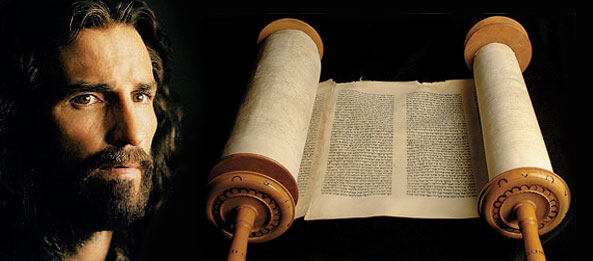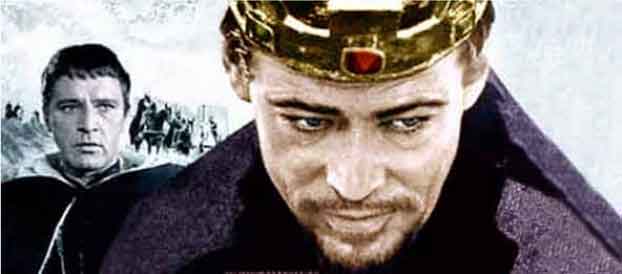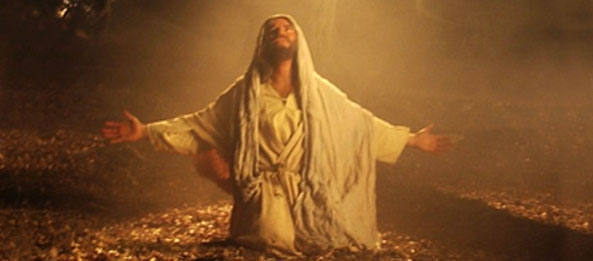Isaiah’s Messianic Prophecies
People love prophecy; even those who are not religious like to discuss predictions of the future. But it gets much more interesting when the predictions come true. At times it may be coincidence, but at other times the predictions can be weirdly accurate. But when we get to Jesus and the way in which he fulfilled Old Testament prophecy we get to a level of prediction that can only be described as ridiculously accurate.
In this post I focus on the prophecies of the Messiah (the Christ) found in the book of Isaiah. But to do this justice we need to put ourselves in the shoes of someone reading the book before Jesus walked the earth. We must read as one who had no knowledge of him. Doing this helps us to understand why there was such a big expectation of a Messiah in the first place.
In case you have never read through Isaiah, let me just say this; at first glance Isaiah is just a book containing many prophetic warnings given to various kings and nations, but between these warnings emerges prophecy of a mystery person. This person is someone Isaiah considered to be Israel’s only hope in a rather dire situation. The mystery person is first described as a child that God gives to the Jewish people, then as a branch (or shoot) that grows out of a tree stump (the conquered Jewish nation), and finally as a servant who lays down his life for the Jews and the entire world. Let’s look at each of these descriptions separately.
The Child
In Isaiah 7:10-17 the prophet is speaking to King Ahaz of Judah. The king has just decided to reject being part of a coalition with Israel against Assyria and God is confirming that this was the right thing to do as Israel was about to be destroyed. The prophet tells Ahaz that God will give him a sign. A virgin (or young girl) will conceive and give birth to a son. The son will be called Immanuel which means ‘God with us.’ But later in 8:3-4 God gives the child an additional name; Maher-Shalal-Hashbaz which means ‘Quick Picking – Easy Prey.’ And God says that before the child can eat solids or say ‘mother’ or ‘father’ the kingdom of Israel will be taken by the Assyrians. At this point it seems that the prophecy is all about an event in the immediate future – God is showing Ahaz when the kingdom of Israel will be conquered. And the name Immanuel would not have been seen as odd because Jews often had names with divine meanings. But then Isaiah adds a second part to the prophecy in Chapter 9:1-7. And here the child suddenly gains a whole string of divine names and also an eternal nature, which is rather odd. The child is called ‘Mighty God,’ ‘Wonderful (or Supernatural) Counsellor,’ ‘Prince of Peace,’ ‘Everlasting Father.’ Plus he is given the divine task of reigning on David’s throne forever. And Jews before Jesus’ time must have been wondering how a ruler could be endowed with such divine ability.
Of course with Christ having come we have the advantage of hind-site; we know there were two fulfilments to this prophecy. An immediate one where the child Maher-Shalal-Hashbaz acts as a sign to Ahaz of when Israel would be conquered, but also a distant one where Jesus as Son of God, Supernatural Counsellor, Prince of Peace, one with the Father rules as King of kings forever.
As indicated above the Hebrew word for ‘virgin’ (almah) in this prophecy can also be translated ‘girl.’ It was usually used to refer to a young girl who was still to get married and had never slept with a man, but could also be used for a girl who had never given birth. In Ahaz’ time the girl was Isaiah’s young wife (8:3) who had never given birth and conceived in a natural way at the time the Lord spoke of. But in the distant fulfilment we see that the virgin is Mary the mother of Jesus who conceived supernaturally and gave birth to the eternal King. The double meaning of ‘almah’ allowed for both immediate and distant fulfilments. It’s interesting that the Septuagint (Greek Old Testament from before Jesus’ time) uses the word ‘virgin’ and not ‘girl,’ and this is the version that Matthew used to refer to Mary in his gospel (Mt 1:23).
The Branch
The Branch is best described as a shoot. This shoot emerges from a tree stump. The Jewish nation was a tree cut down by Assyria, but out of the remaining stump comes a shoot – a person who leads a new nation of people that are obedient to God. Again there is an immediate fulfilment when the Jews return to their land after being in captivity, but there is a distant and greater fulfilment when Christ emerges as a shoot out of a spiritually dead Israel and leads a remnant of the Jews into a kingdom that is eternal and not of this world (John 18:36).
Like the child; the Branch is said to have the Spirit upon him, the Branch is righteous and the Branch is supernaturally guided. It is quite clear that the child and the Branch are the same person, and that the child and the Branch are God’s solution for a Jewish nation that is about to be destroyed. From this time on whenever the Jews were oppressed they would find hope in Isaiah’s prophecies of a saving Messiah. And this was especially true at the time of Christ when Israel was being dominated by Rome. The interest is obvious from the conversations of the men who first followed Jesus. John 1:45-46 says ‘Philip found Nathanael and told him, “We have found the one Moses wrote about in the Law, and about whom the prophets also wrote – Jesus of Nazareth, the son of Joseph.” “Nazareth! Can anything good come from there?” Nathanael asked. “Come and see,” said Philip.’
The Servant
Like the child and the Branch the Servant is described as a shoot, someone with God’s Spirit upon him, and as someone who acts justly. The Servant appears in four songs (or poems) found in Isaiah 42, 49, 50 and 52-53. And like the Branch the Servant offers the Jews hope when the kings Israel and Judah had become disobedient. Here is the fourth and final song of the suffering Servant found in Isaiah 52:13-53:12. It is worth reading all the way through:
‘See, my servant will act wisely; he will be raised and lifted up and highly exalted. Just as there were many who were appalled at him – his appearance was so disfigured beyond that of any man and his form marred beyond human likeness – so will he sprinkle many nations, and kings will shut their mouths because of him. For what they were not told, they will see, and what they have not heard, they will understand.
Who has believed our message and to whom has the arm of the LORD been revealed? He grew up before him like a tender shoot, and like a root out of dry ground. He had no beauty or majesty to attract us to him, nothing in his appearance that we should desire him. He was despised and rejected by men, a man of sorrows, and familiar with suffering. Like one from whom men hide their faces he was despised, and we esteemed him not.
Surely he took up our infirmities and carried our sorrows, yet we considered him stricken by God, smitten by him, and afflicted. But he was pierced for our transgressions, he was crushed for our iniquities; the punishment that brought us peace was upon him, and by his wounds we are healed. We all, like sheep, have gone astray, each of us has turned to his own way; and the LORD has laid on him the iniquity of us all.
He was oppressed and afflicted, yet he did not open his mouth; he was led like a lamb to the slaughter, and as a sheep before her shearers is silent, so he did not open his mouth. By oppression and judgment he was taken away. And who can speak of his descendants? For he was cut off from the land of the living; for the transgression of my people he was stricken. He was assigned a grave with the wicked, and with the rich in his death, though he had done no violence, nor was any deceit in his mouth.
Yet it was the LORD’s will to crush him and cause him to suffer, and though the LORD makes his life a guilt offering, he will see his offspring and prolong his days, and the will of the LORD will prosper in his hand. After the suffering of his soul, he will see the light [of life] and be satisfied; by his knowledge my righteous servant will justify many, and he will bear their iniquities. Therefore I will give him a portion among the great, and he will divide the spoils with the strong, because he poured out his life unto death, and was numbered with the transgressors. For he bore the sin of many, and made intercession for the transgressors.’
The text basically says that the Servant suffers to atonement for other peoples sins. Isaiah says ‘He was pierced for our transgressions … the Lord has laid on him the iniquity of us all … the Lord makes his life a guilt offering … my righteous servant will justify many.’ It is quite profound that Isaiah would prophecy this because Jews did not use humans to atone for sins, they used animals. But in hind-site we can see that all their animal sacrifices pointed to a final sacrifice that would be made by the Messiah (the Christ). Soon after Christ was crucified and resurrected all Jewish animal sacrifices ceased. Isaiah 53 is quite obviously a prophetic picture of Christ on the cross. When Christ was crucified he took the sins of the world upon him so the nations could be healed.
But let’s now look at what we get when we bring the prophecies of the Child, the Branch and the Servant together. Below I have listed a few important things:
He will be a descendant of David, he will be the son of a virgin, he will be called ‘God with us’ and ‘Mighty God,’ he will have the Spirit of the Lord upon him, he will open the eyes of the blind, he will set captives free, he will release those in darkness, he will care for needy, he will be merciful to broken, he will bring honour to Galilee, he will be a covenant between God and the people, he will be our atonement for sins, he will bring wells of salvation, he will be a light to the Gentiles, he will be a righteous judge, and he will reign forever.
These prophecies paint such a convincing picture of Christ that some people have wondered if Christians tampered with the words of Isaiah. But anyone can check manuscripts like the Dead Sea Scrolls or the Septuagint mentioned above that are much older than Christ and they will see that the words have never changed. What we are dealing with here is genuine prophecy with genuine fulfilment.
It’s worth stating that Jesus knew he was the mystery man prophesied by Isaiah. In fact when Jesus wanted to state what his mission was, he stood up in a synagogue in Galilee, opened the scroll of Isaiah at chapter 61:1 and read, ‘The Spirit of the Lord is on me, because he has anointed me to preach good news to the poor. He has sent me to proclaim freedom for the prisoners and recovery of sight for the blind, to release the oppressed, to proclaim the year of the Lord’s favour.’ He then rolled the scroll up and said to everyone that was watching, “Today this scripture is fulfilled in your hearing” (Luke 4:17-21). Jesus believed he was the ‘anointed one’ (Messiah) of Isaiah’s prophecies, he believed he was the Child, the Branch and the Suffering servant who was to come.
Why is Messianic prophecy important?
Messianic prophecy given in the Old Testament and fulfilled in the New Testament is important for two reasons. First, it is provides powerful evidence for those who wish to prove that the Bible is inspired by God. It is in fact the best evidence; only God knows the future. Second, it confirms that Jesus is unique. He is the one who takes the sins of the world upon himself, judges all nations and rules forever. And this last point has an attachment; if Christ is unique then so is Christianity.
You’ve seen the prophecies; you know their fulfilments. If you believe Jesus is the prophesied Messiah, commit to it and preach it with all you have.







